Our work
EDRi is the biggest European network defending rights and freedoms online. We work to to challenge private and state actors who abuse their power to control or manipulate the public. We do so by advocating for robust and enforced laws, informing and mobilising people, promoting a healthy and accountable technology market, and building a movement of organisations and individuals committed to digital rights and freedoms in a connected world.
Filter resources
-
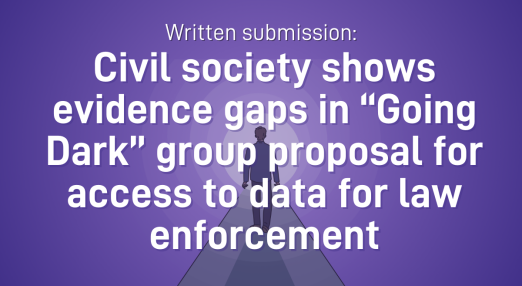
Written submission: Civil society shows evidence gaps in “Going Dark” group proposal for access to data for law enforcement
On 28 February 2024, EDRi and its members submitted written comments on the work of the High-Level Group (HLG) on “access to data for effective law enforcement". This HLG was set up under the Swedish Presidency of the Council in 2023 to allegedly find solutions to law enforcement ‘modern challenges’ in the digital era.
Read more
-
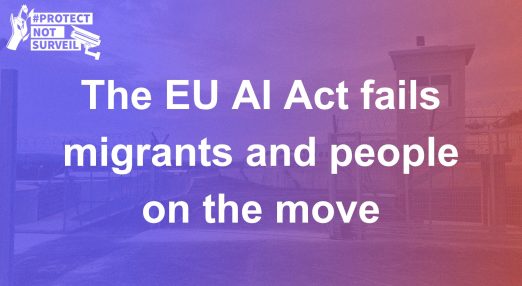
#ProtectNotSurveil: The EU AI Act fails migrants and people on the move
The #ProtectNotSurveil coalition is calling attention to how the EU AI Act - adopted by the European Parliament on March 13 - is failing to prevent harm and provide protection for migrants and people on the move.
Read more
-
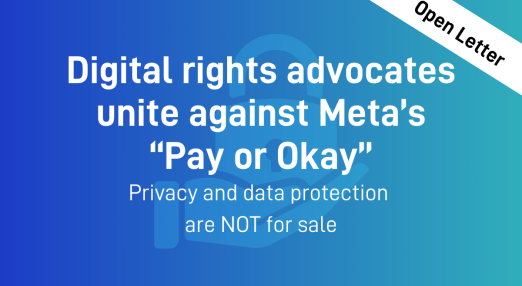
Open letter: Digital rights advocates unite against Meta’s “Pay or Okay”. Privacy and data protection are NOT for sale
In response to three Data Protection Authorities (DPAs) requesting a European Data Protection Board (EDPB) opinion on Meta's 'Pay or Consent' approach, Access Now, the EDRi office and other EDRi members have united in an open letter urging the Board to reject these subscription-based approaches unequivocally.
Read more
-
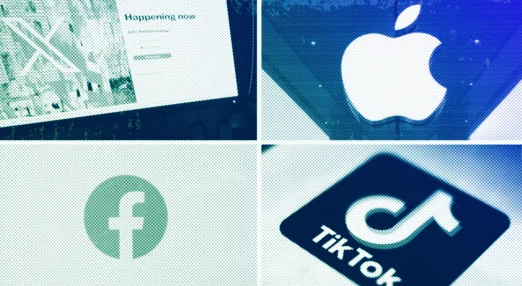
Delay, depress, destroy: How tech corporations subvert the EU’s new digital laws
When the DSA and DMA were passed in 2022, major tech industry associations praised the new laws as significant achievements. It is time for Big Tech corporations to stop pouting and live up to their responsibility.
Read more
-

Bits of Freedom launches campaign on DSA user rights
EDRi member in the Netherlands Bits of Freedom has launched a campaign to bring attention to user rights addressed by the European Union's new digital law, the Digital Services Act. On the brand new website, that engages civil society, you can find guidelines on how to enforce your own platform rights.
Read more
-
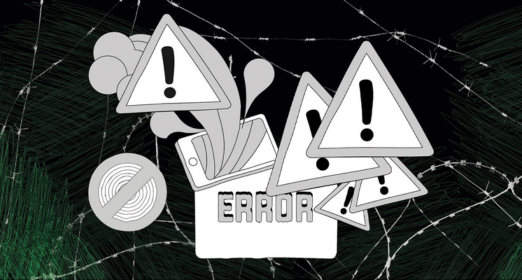
Meta must act: stop the systematic censorship of Palestinian voices
Meta’s continuous censorship of Palestine-related content in times of war is a systematic issue that the tech giant must immediately address. Access Now’s new report, It’s not a glitch: how Meta systematically censors Palestinian voices, delves into how the company silences the voices of Palestinians and those advocating for their rights on Facebook and Instagram.
Read more
-
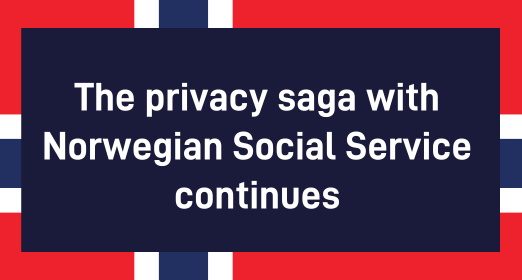
The privacy saga with Norwegian Social Service continues
We promised you an update to Janne Cecilie Thorenfeldt’s case taking the Norwegian Labour and Welfare Administration (NAV) on the European Court of Human Rights (ECHR). Since EDRi member Elektronisk Forpost Norge (EFN) reported about the massive GDPR violations of the Service, here is what happened.
Read more
-

EDRi-gram, 06 March 2024
On 17 February, one of the landmark digital laws, the Digital Services Act, in the European Union came fully into force. Now, you've got a whole bunch of fantastic online rights at your fingertips. But don't worry, we've got your back! Our friends at Bits of Freedom have whipped up a shiny new website packed with easy-peasy actions to help you understand and flex those digital rights muscles like a pro. But wait, there's more! We're thrilled to introduce you to our new Head of Policy, Ella Jakubowska. Ella takes up this role from her previous EDRi position as Senior Policy Advisor, where she led advocacy on facial recognition, the confidentiality of online communications, age verification and more. She’ll be spending the coming months listening and learning, so please get in touch if you’d like to talk all things digital rights policy.
Read more
-

#PrivacyCamp24: Event summary
On January 24, 2024, we brought together policymakers, activists, human rights defenders, and academics from all over Europe for Privacy Camp 2024. We came together to explore the theme ‘Revealing, Rethinking, and Changing Systems’.
Read more
-

Welcome EDRi’s new Head of Policy: Ella Jakubowska
Ella takes up this role from her previous EDRi position as Senior Policy Advisor, where she led advocacy on facial recognition, the confidentiality of online communications, age verification and more.
Read more
-

Civil society complaint raises concern that LinkedIn is violating DSA ad targeting restrictions
On 26 February, EDRi and its partners Global Witness, Gesellschaft für Freiheitsrechte and Bits of Freedom have submitted a complaint to the European Commission regarding a potential infringement of the Digital Services Act (DSA).
Read more
-

Press Release: Brussels rocked by major spyware scandal: Urgent call for ban
Now, when push has come to shove, policymakers at the European Union (EU) must act to ban spyware in Europe. Yesterday, the media reported a major attack on EU democracy with members of the European Parliament Defense Committee being the target of phone hacking.
Read more
